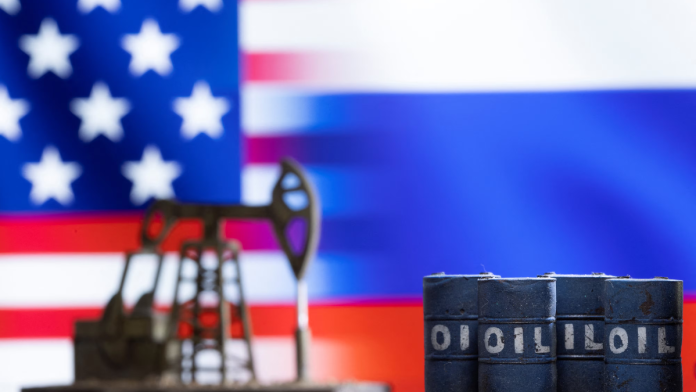India has spent nearly three years buying large amounts of discounted Russian oil. After the Ukraine conflict began, Western countries reduced purchases from Russia, lowering its oil prices. India took advantage of this, importing cheap crude to cut refinery costs and keep fuel affordable. The discounted barrels also helped Indian companies export refined products.
This flow of Russian oil is now expected to slow. New U.S. sanctions starting Friday will target companies dealing with Russia’s two largest oil suppliers. While India is not directly named, the sanctions affect any company relying on global banks, shipping, or insurance. Ignoring them could create serious financial risks for Indian refiners.
In the days before the deadline, the last large tankers of Russian crude rushed out of the Black Sea to reach India. This surge highlights how important Russian oil has been and the urgency Indian companies felt to secure supplies. Experts expect a significant drop in Russian arrivals once these shipments are processed.
The sanctions follow months of tension between the two countries. Earlier this year, the U.S. raised tariffs on certain Indian goods, doubling import duties and affecting several industries. The move aimed to pressure India over its Russian oil imports, but India continued buying discounted barrels due to their financial benefits.
Changing Oil Flows in India
Russian crude made up nearly 40 per cent of India’s total oil imports, a major shift from its usual reliance on Middle Eastern suppliers. The low prices made Russian oil attractive for domestic use and exports to Europe and other regions.
However, staying connected to global banks and insurance is essential for Indian refiners. The new sanctions target companies dealing with Russia’s main producers, and losing access to international financial systems could disrupt operations and cause major losses. For this reason, major private oil firms in India have confirmed they follow international rules and will comply with the new regulations.
State-owned companies are expected to do the same, keeping supply chains free of sanctioned barrels and avoiding any disruptions to global partnerships.
Complications for Certain Buyers
Not every company in India faces a straightforward decision. One large private refinery has strong ownership ties to Russian investors. Even though a major Russian energy group holds a large stake in the company, it does not exceed the level that would trigger direct sanctions. This means the company itself is not automatically restricted by the new measures. Still, the link to Russian shareholders has raised questions about how it will adjust its buying strategy.
Industry observers say this company’s operations are not fully open to public tracking. Because of this, analysts describe it as difficult to predict how much Russian crude it will continue buying. Some believe it may reduce imports to avoid scrutiny, while others suggest it may try to operate within the narrow space permitted by the rules.
Smaller traders and buyers in India face even greater uncertainty. Some may consider buying small quantities of Russian oil through less visible shipping routes. But most are expected to move cautiously. Protecting access to global banking, insurance, and technology is more important for long-term business than taking risks for a few discounted shipments.
India Signals Cooperation Through New Energy Moves
As the sanctions deadline approaches, India has taken steps that appear to ease some of the tension. This week, India announced that it would import liquefied petroleum gas from the U.S. Gulf Coast for the first time. The supplies will include propane and butane. This move opens a large and growing market for American producers and shows India’s willingness to expand and diversify its energy sources.
With the sanctions about to take effect, Indian refiners are now focused on processing the last Russian shipments that arrived before the deadline. After that, the country’s oil companies will need to adjust their supply patterns as imports from Russia decline.


